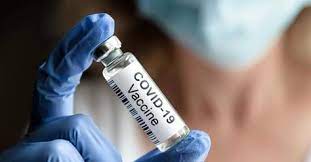The answer is YES. In the May 2021 issue of the Multiple Sclerosis Journal, A. Achiron et al. (Israel) published a paper demonstrating the innocuousness of the Pfizer vaccine in 555 MS patients. This vaccine does not increase the risk of flare-ups of the disease. The side effects observed were the same as in the general population, chiefly pain at the site of the injection, tiredness and headaches. The frequency of flare-ups at the time of the injection and up to 38 days after the second injection was identical to that observed in patients at the same time of year in 2017, 2018, 2019 and 2020. Between the first and second shots, 0.5 % of these patients caught Covid-19. Strikingly, no cases of Covid-19 were observed after the second injection.
It should be remembered that any viral infection can trigger a relapse of MS and that Covid-19 is no exception to this rule. A few MS relapses following Covid-19 infections have therefore been described.
Vaccinated individuals act as ‘mousetraps’ for the virus. If it penetrates the mouth or nose, it is soon neutralised by antibodies. Less than 1% of vaccinated individuals will catch Covid, and in two thirds of cases this will be asymptomatic. Vaccinated individuals carry only a very slight viral load which is not enough to pass on the disease to someone else. Having yourself vaccinated therefore not only protects you but the people around you. If an MS patient is not vaccinated, their family and friends will always be afraid of giving them the disease; and if they do, they could feel extremely guilty. The vaccine therefore protects both ways.
All depends on the planned treatment. In the case of a first- (interferon, Copaxone, Aubagio, Tecfidera) or second-line treatment (Tysabri, Mavenclad), it is not necessary to postpone the beginning of the treatment by having yourself vaccinated first.
Yes, if you are going to be treated with Lemtrada, Ocrevus or Gilenya. It is best to be vaccinated prior to beginning one of these treatments.
Yes. There are marked differences between the effects of these drugs on the effectiveness of vaccination. This information has just been published by an Israeli team in a paper of 7 April 2021 (Achiron et al., Therapeutic Advances in Neurological Disorders). Their conclusion is that the antibody reaction induced by the vaccine is identical in healthy individuals, untreated MS patients and MS patients treated with Mavenclad when the vaccine is given 4 months after the last dose. However, only 3.8% of patients treated with Gilenya and 22.7% of patients treated with Ocrevus developed adequate antibody levels, whatever their total blood lymphocyte levels. The Ocrevus patients had been given the vaccine 4 to 9 months after their last treatment. I do not know of any vaccine data relating to the subgroup of Tecfidera patients with lowered lymphocyte counts. We therefore need to ascertain the effectiveness of the vaccine by measuring Covid-19 antibodies 4 to 6 weeks after the second injection. The question will be whether and how extra doses will be required in the event of a lack of response.
All depends on the type of treatment. You will probably have to postpone the second Lemtrada cure, and postpone the second Ocrevus cure by at least 9 months. The issue of whether persons treated with Gilenya should be vaccinated also needs to be raised.
No. At this point in time, there is no preference for any particular vaccine. However, the AstraZeneca vaccine is only being given to people over 41 due to a very slight risk of blood clotting in young women aged 20 to 40.
It is not yet possible to answer questions relating to booster shots as it is not exactly known how long the vaccine protects against Covid. As far as drugs are concerned, the issue also remains open in the case of patients treated with Ocrevus or Gilenya, as well as the minority of patients treated with Tecfidera whose blood lymphocyte levels strongly decrease.

